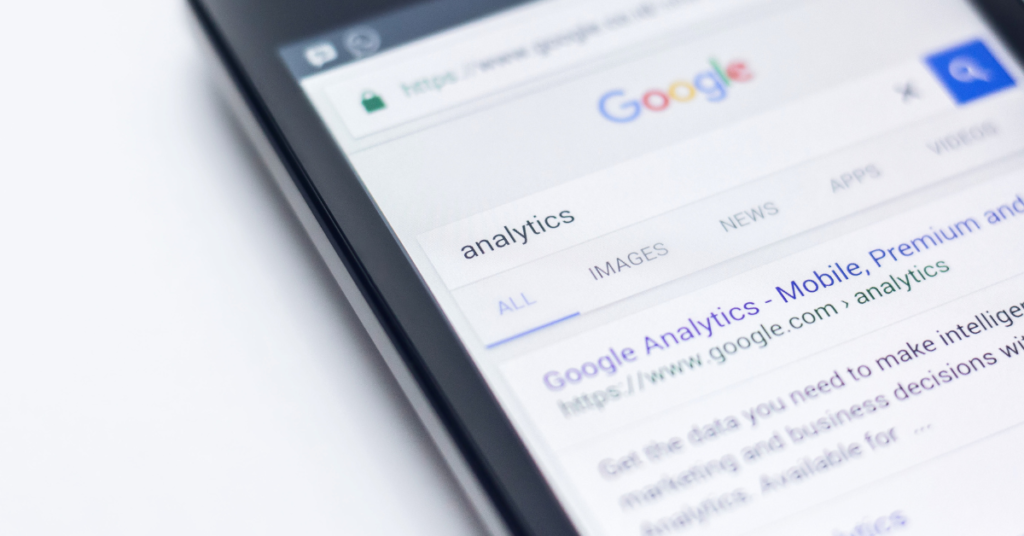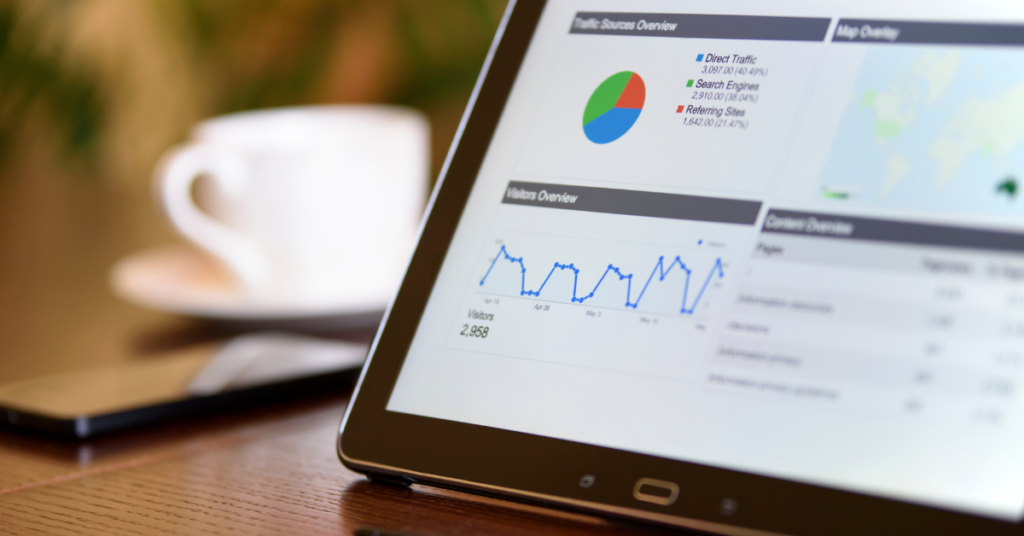Why Your Small Business Needs A Blog

Nick Czerwinski
PPC & Local SEO Specialist
Hello there! If you’re a small business owner, you already know that standing out in today’s competitive market can be challenging. With so many options available to consumers, it’s not enough to just have a great product or service. You need to find ways to reach your target audience and connect with them in meaningful ways. That’s where blogging comes in.
Blogging is a valuable tool that can help small businesses build brand awareness, establish credibility, and generate leads. By providing informative and engaging content, you can attract and retain a loyal audience that will consume your content and share it with others, helping you expand your reach and grow your business.
In this post, we’ll explore why small businesses need a blog and how you can start creating one to help you achieve your business goals.
Exploring the Benefits of Blogging for Small Businesses
Now that we’ve established why blogging is essential for small businesses, let’s take a closer look at the various benefits it can offer:
Increased visibility and brand awareness: By regularly creating and publishing valuable content, you can improve your search engine ranking, making it easier for potential customers to find you online. In addition, sharing your blog posts on social media can help you reach a wider audience and increase brand awareness.
Establishing credibility and authority: By sharing your expertise and knowledge in your industry, you can establish yourself as a thought leader and trusted authority in the eyes of your audience. This can help build trust and credibility, making customers more likely to choose to do business with you.
Building a loyal audience and community: Blogging allows you to engage with your audience and build a community around your brand. By encouraging comments and feedback, you can foster a sense of connection and loyalty with your audience, increasing the likelihood that they will become repeat customers.
Generating leads and sales: By including calls-to-action (CTAs) in your blog posts, you can encourage readers to take action, such as signing up for a newsletter, downloading a free resource, or making a purchase. In addition, offering promotions and discounts through your blog can help drive sales and revenue.
As you can see, there are many compelling reasons why small businesses should consider starting a blog. The key is to create informative, engaging, and relevant content for your target audience. In the next section, we’ll explore how to get started with your own blog.
Honestly, I consider him part of my Team as well, he really cares about our success. As we grow, he will grow with us. I’m excited about the journey and future with Mike and his Team at Metalogic! If you’re looking at Internet Marketing for your business, simply put he’s the best!

Chris Chustz
Owner, Family First Mortgage
Steps to Get Started with Blogging for Your Small Business
Now that we’ve explored the benefits of blogging for small businesses, let’s dive into some tips and best practices for creating and maintaining a blog that engages your audience and helps you achieve your business goals.
Define Your Goals and Target Audience
The first step in creating a successful blog is to define your goals and target audience. Ask yourself: What do you want to achieve with your blog? Who are you trying to reach? Understanding these factors will help you create content that resonates with your audience and drives engagement.
Create a Content Strategy
Once you’ve defined your goals and target audience, it’s time to create a content strategy. This should include topics relevant to your audience, a publishing schedule, and a promotion plan. Keep in mind that consistency is critical to building a loyal readership.
Create High-Quality Content
An essential factor in creating a successful blog is creating high-quality content that is informative, engaging, and relevant to your audience. This can include blog posts, infographics, videos, and other types of content that your audience will find valuable. Remember, your goal is to provide value to your readers and position yourself as a trusted authority in your industry.
Optimize for Search Engines
To ensure that your blog is discoverable by your target audience, it’s crucial to optimize your blog content for SEO. This includes using relevant high intent keywords, optimizing meta descriptions and titles, and using internal and external links. However, don’t sacrifice the quality of your content for the sake of SEO. Your content should always be written for humans first.
Promote Your Blog
Creating high-quality content is just the first step. You must also promote your blog through various channels, such as social media, email marketing, and guest posting on other blogs. This will help increase your reach and attract new readers to your blog. And remember, engaging with your audience through these channels is just as crucial as publishing great content.
Engage with Your Audience
Finally, engaging with your audience by responding to comments, asking for feedback, and encouraging social media shares is vital. This will help build a sense of community around your brand and increase the likelihood of repeat visits. And feel free to experiment with different content and promotion strategies to see what works best for your business.
By following these tips and best practices, you can create a blog that drives traffic and leads, helps you build a loyal audience, and establishes yourself as a trusted authority in your industry.
Custom Marketing Plans Starting at $500 / month
Tracking and Evaluating the Success of Your Small Business Blog
Creating and maintaining a blog for your small business requires time, effort, and resources. Measuring your blog’s success is essential to ensure that your efforts are paying off. Here are some key metrics to track:
Traffic: One of the most fundamental metrics to track is the amount of traffic your blog receives. Use Google Analytics or other web analytics tools to track the number of visitors, page views, and time spent on your blog. This will give you a good sense of the overall popularity of your blog and help you identify any trends or patterns in your audience’s behavior.
Engagement: Engagement metrics, such as comments, social shares, and time on site, indicate how well your content resonates with your audience. Pay attention to which posts generate the most engagement and try to replicate that success in future posts.
Conversion: Ultimately, the success of your blog should be measured in terms of conversions, such as leads or sales. Use conversion tracking tools, such as Google Analytics, to measure your blog’s impact on your business’s bottom line.
SEO Performance: Track the performance of your blog in search engines. Monitor your blog’s ranking for your target keywords, click-through rate, and other relevant SEO metrics.
Referral Traffic: Track where your blog’s traffic is coming from. This will help you identify which channels drive the most traffic to your blog and adjust your promotion strategy accordingly.
Audience Demographics: Use analytics tools to understand your audience demographics. This can help you create content tailored to your target audience’s interests and needs.
By regularly tracking these metrics, you can make data-driven decisions to optimize your blog’s performance and ensure that it’s driving the results you want for your business.
Remember, measuring the success of your blog isn’t just about numbers. It’s also about understanding how your blog impacts your target audience and your business’s bottom line. Use the metrics that matter most to your business to guide your content strategy and ensure that your blog delivers value to your readers and drives results for your business.
Conclusion
In today’s digital age, a blog is no longer just a nice-to-have for small businesses. It’s a critical tool for building your brand, establishing your authority, and driving traffic and leads to your website. By creating high-quality content that resonates with your target audience, you can position your business as a thought leader in your industry and attract new customers to your products or services.
Whether you’re just getting started or you’ve been blogging for years, always remember to keep your audience’s needs and interests in mind. By providing value through your content, engaging with your readers, and measuring your success, you can create a blog that helps you achieve your business goals, strengthens your brand, and builds a loyal community of followers.
So, if you haven’t already, it’s time to start blogging! With the right strategy and approach, your blog can be a powerful tool for growing your business and achieving long-term success.
Become A Google Ads Specialist With MetaLOGIC's Local Digital Marketing Academy
Get your business in front of the right people with Google Ads. From display and search campaigns to Shopping and video campaigns, there’s a way to reach your target audience on the Google Ads platform. Don’t wait to see results – Learn more about our Google Ads Online Training Course.







